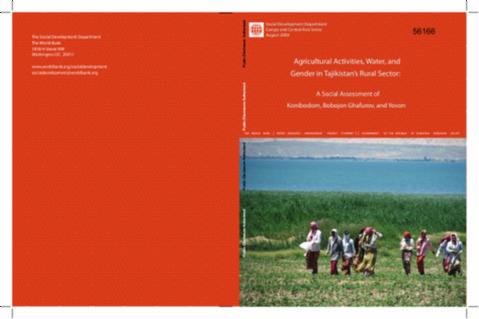Resource information
This social assessment (SA) was conducted under the Fergana Valley Water Resources Management Project (FVWRMP), which is providing assistance to the Government of Tajikistan to address irrigation and drainage deficiencies in Eastern Sughd. The main SA objectives were to understand how prevailing structures of water provision, land reforms, and gender relations impact rural livelihoods; to analyze experiences in establishing inclusive Water Users Associations (WUAs); and to provide recommendations to FVWRMP with the aim of enhancing its programs. The SA targeted nine jamoats divided equally among Bobojon Ghafurov, Konibodom, and Yovon districts. The two northern districts were covered by FVWRMP and the Farm Privatization Support Program (FPSP) operated in the southern district (Yovon). Yovon's jamoats were selected specifically to analyze their WUAs formed in conjunction with farm privatization carried out under FPSP. Due to the limited number of community-based water management initiatives in the above-mentioned target areas, other WUAs were included in this study. A survey questionnaire was administered to 1275 households. Fifteen focus groups (mostly-female) and 38 in-depth interviews were also conducted. The SA results raise stakeholder awareness of the main water-related issues faced in the target areas as well as the major factors influencing WUA operations. While some of the study's recommendations are beyond the scope of FVWRMP and must be dealt with through other initiatives, as a response to the SA findings, the project is now aiming to continue its work on the rehabilitation of irrigation networks, drainage systems, and reservoir dykes and to emphasize institutional development through establishing water users associations and issuing land use certificates.


